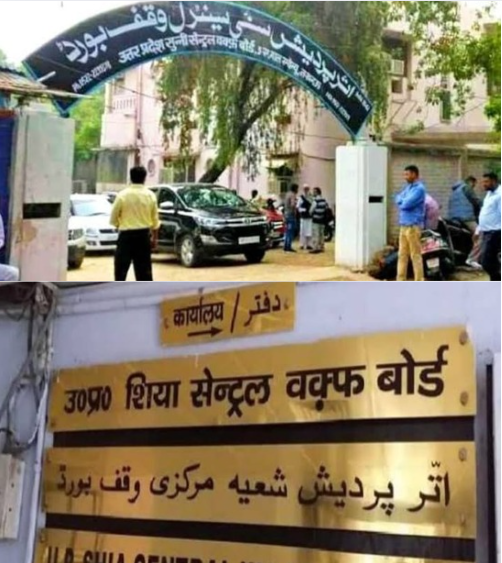– Akhilesh Tripathi
Lucknow: Registering waqf property in revenue records will no longer be easy in Uttar Pradesh. The UP government has issued new, detailed guidelines regarding this.
To register waqf property UP, the state government has set new regulations, making it much harder to record such properties in revenue records. Waqf boards will need to issue a fresh notification for the process. This notification will then be sent to the respective tehsil, where the property’s details will be cross-checked with the 1952 revenue records. Only after verification will the land be registered as waqf property.
Previously, the Shia Waqf Board and Sunni Waqf Board would register a property/land as waqf property and then send its notification to the tehsil. There was no need for further advocacy to get it entered into the revenue records, and it was assumed that the property would automatically be recognised as waqf land. However, this will no longer be the case. Now, the process will have to go through a proper channel before waqf properties can be registered in revenue records.
Currently, there are a total of 132,140 properties recorded as waqf properties in the Waqf Board’s records in UP. However, out of these, only 2,528 properties have been officially mutated (transferred) in the tehsil’s revenue records as waqf properties. For any property to be recognised as waqf, its mutation (official transfer) in the revenue records is essential.
Many waqf properties that were recorded 50-60 years ago in Uttar Pradesh have still not undergone mutation (official transfer) in revenue records. In most such cases, it has been found that notifications for registering these waqf properties in revenue records were never sent to the tehsils.
As per regulations, a property must be recorded in the tehsil’s revenue records within six months of issuing the notification. However, due to the newly introduced rules, both Shia and Sunni Waqf Boards will now have to cancel their previously issued notifications and issue fresh ones. These new notifications will then need to be sent to the tehsils for verification.
The verification process for these new notifications is expected to face major challenges, as many circumstances have changed over time. According to the new system, the property for which a waqf notification is issued must be cross-checked with the 1952 revenue records within six months. Only after this verification will a final decision be made.
During this process, officials will check whether the donor of the property legally owned the land in 1952 and whether the land in question falls under a reserved category of government land.
If the tehsil administration finds that the Waqf Board’s claims do not meet these criteria, the notification will be rejected and sent back to the Waqf Board.
This situation poses a major risk to many properties registered under Waqf Board. If these properties fail verification, they will no longer remain under waqf control and will instead come under government ownership.
The new provision has created a major crisis for waqf properties in UP, and escaping this situation has become extremely difficult.




